In this DIY tutorial, learn how to soundproof windows with simple DIY tips. I show you different techniques to reduce noise pollution.
Finding a quiet moment can sometimes be a daunting task.
The constant outside noise from busy street traffic, construction site, and even loud neighbors can disrupt your peace and quiet.
One of the best ways to combat this unwanted noise pollution is by soundproofing your windows.
In this article, learn how to soundproof windows with these easy DIY tips.
15 Proven Tips to Soundproof Windows DIY
These 15 simple DIY tips show you exactly how to soundproof windows.
1 – Use Soundproof Curtains or Blinds
The simplest way to soundproof a window is by hanging soundproof curtains or blinds.
These are made from specially designed materials that absorb sound waves, reducing the amount of noise that can pass through.
They are also easy to install and can be a stylish addition to your decor.
2 – Install Soundproof Window Inserts
Window inserts are another effective solution for noise reduction.
The layer of air trapped between the window and the insert acts as insulation, reducing the amount of noise that can pass through.
Additionally, these inserts are often made from materials that absorb sound rather than transmitting it, such as acrylic or laminated glass.
In turn, window inserts can significantly decrease the level of external noise that enters a room.
They act as a second barrier to sound and can be installed without professional help.
Plus, they allow light to pass through, maintaining your room’s natural brightness.
3 – Apply Acoustic Caulk
Acoustic caulk is a type of sealant designed to block sound waves.
It can be applied around window frames where there may be gaps or cracks, preventing noise from seeping through.
The layer of air trapped between the window and the insert acts as insulation, reducing the amount of noise that can pass through
Additionally, these inserts are often made from materials that absorb sound rather than transmitting it, such as acrylic or laminated glass.
As a result, when used correctly, window inserts can significantly decrease the level of external noise that enters a room.
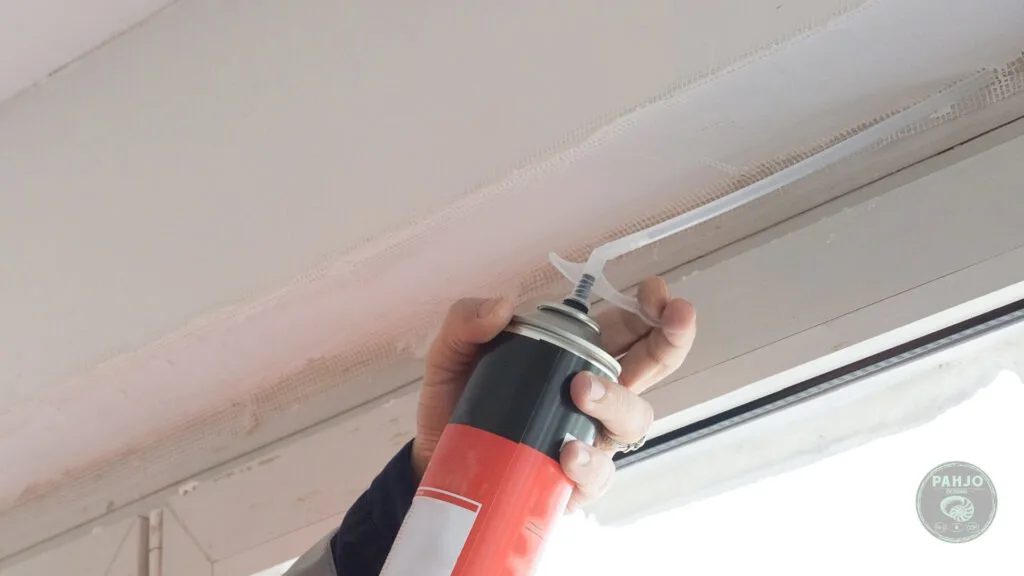
4 – Use Weatherstripping
Weatherstripping is a great way to block out noise and improve your home’s energy efficiency.
It seals the gaps between your window and its frame, preventing noise and drafts from entering.
These gaps are often the result of normal wear and tear or poor window installation.
When a window is weather-stripped, it creates an airtight seal that prevents noise from leaking through.
The denser the material used for weather stripping, the more effective it can be at blocking sound.
This is because denser materials are better at absorbing and dampening sound waves, thereby reducing the overall noise level.
5 – Install Double Glazed Windows
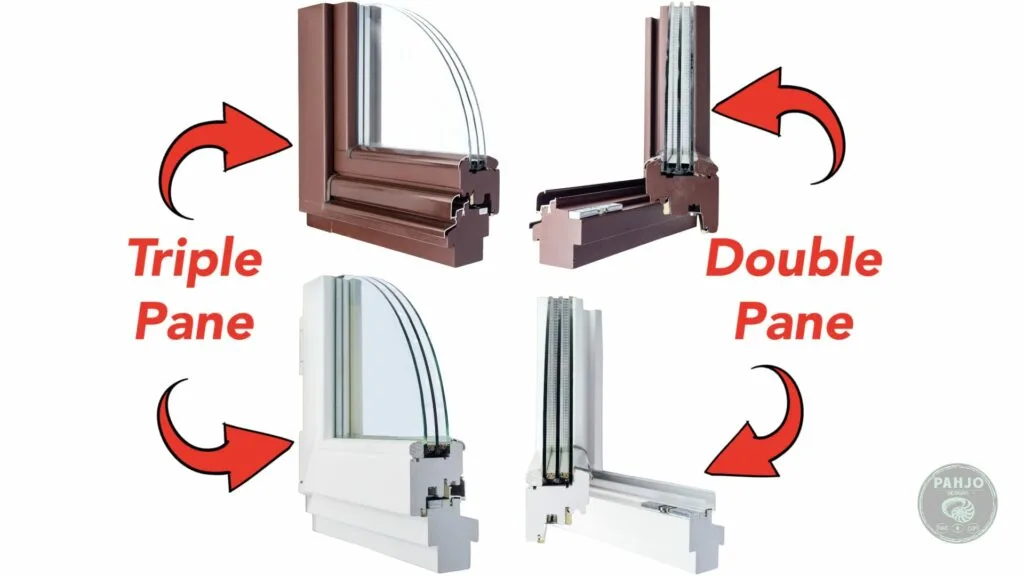
Double glazed windows have two panes of glass with an air gap in the middle, which significantly reduces the amount of noise that can pass through.
Although windows with multiple layers of glass involve a higher cost and professional installation, it’s a long-term solution that also improves thermal insulation and heat transfer.
The two glass layers with an insulating gap in between, act as a buffer zone, absorbing and dispersing much of the sound energy that hits it.
This reduces the amount of sound that can pass through.
Additionally, the seals around double glazed windows are generally tighter than those around single glazed windows, which further helps to prevent sound leakage.
6 – Try Soundproof Window Film
Soundproof window film is a thin layer of material that sticks to your window, reducing noise transmission.
The film is made from a dense material that absorbs, deflects, or diffuses sound waves, thus reducing the amount of noise that can pass through the window.
This is particularly effective for high-frequency noises.
Also, some soundproof films are designed to create an airtight seal.
As a result, it prevents air and sound from leaking through gaps around the window.
It’s a cost-effective solution for noise reduction without replacing windows or making significant structural changes.
As an added bonus, it provides additional benefits such as UV protection.
7 – Opt for Laminated Glass
Laminated glass film helps soundproof windows by adding an extra layer of material that sound waves have to pass through.
This layer, often made of a special type of plastic known as PVB (polyvinyl butyral), is designed to absorb and dampen vibrations.
In turn, reducing the amount of sound allowed to pass through the window.
Additionally, the laminated film can help to create an air gap between the layers of glass.
This also serves to disrupt the path of sound waves, further enhancing the window’s soundproofing capabilities.
8 – Use Acoustic Window Panels
Acoustic window panels help soundproof windows by adding an extra layer of barrier that obstructs the passage of sound waves.
These panels are usually made from materials that have high sound absorption properties, such as foam or vinyl.
When installed, they create a sealed air gap between the window and the panel, which further hinders the transmission of sound.
As a result, the amount of external noise entering the room is significantly reduced by up to 70%.
9 – Install Window Plugs
Window plugs help soundproof windows by creating an additional barrier that sound waves must pass through.
This barrier is usually made of a dense, sound-absorbing material like foam or fiberglass.
When sound waves hit this barrier, they are absorbed and their energy is dissipated, reducing the amount of sound that can pass through the window.
Window plugs can be particularly effective for blocking out high-frequency noises, which are typically the most disruptive.
Also, they can be easily removed when not in use, making them a flexible solution for soundproofing.
10 – Use Thick Material Blinds
Thick material blinds can contribute to soundproofing windows by absorbing and blocking sound waves.
The dense material provides an extra layer of insulation, preventing sound from easily passing through.\
It works on the principle of mass law.
This states that doubling the mass of a barrier reduces the sound that passes through it by approximately 6 decibels.
Additionally, the texture of the blinds can scatter sound waves, reducing their intensity.
However, while they can help reduce noise, window treatments are not as effective as other soundproofing methods like double-glazed windows or soundproof curtains.
11 – Install a Soundproof Window Gasket
Soundproof window seals work by plugging gaps or cracks in windows where sound can penetrate.
They’re typically made from materials like vinyl or foam, which have excellent sound-absorbing properties.
By creating an airtight seal, they prevent sound waves from traveling through.
Furthermore, they help enhance the overall soundproofing of windows by dampening vibrations.
The seal’s thickness and density also play a significant role – the denser and thicker the seal, the better it can prevent sound transmission.
12 – Use Noise Reduction Window Screens
Noise reduction window screens help soundproof an existing window by adding an extra layer of protection against external sounds.
They are typically made from specialized materials that have sound-absorbing properties.
The screen works by reducing the amount of sound vibrations that pass through it, thereby lowering the amount of noise that can enter your home.
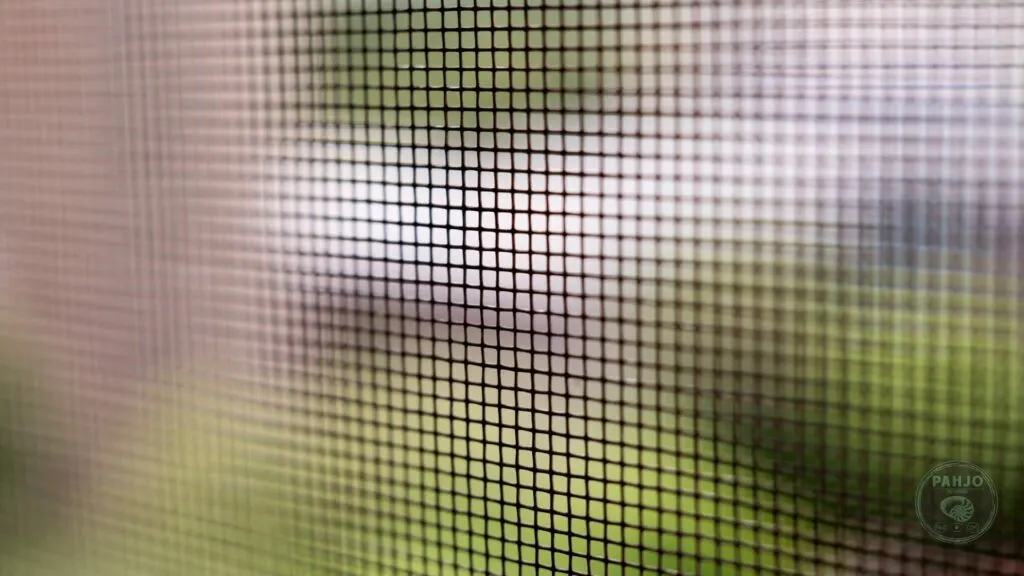
Moreover, these screens also create a buffer of air between the window and the screen, which further helps to reduce noise transmission.
Therefore, they not only provide a quieter indoor environment but also enhance your privacy by blocking out unwanted noise from the outside world.
13 – Replace Old Windows
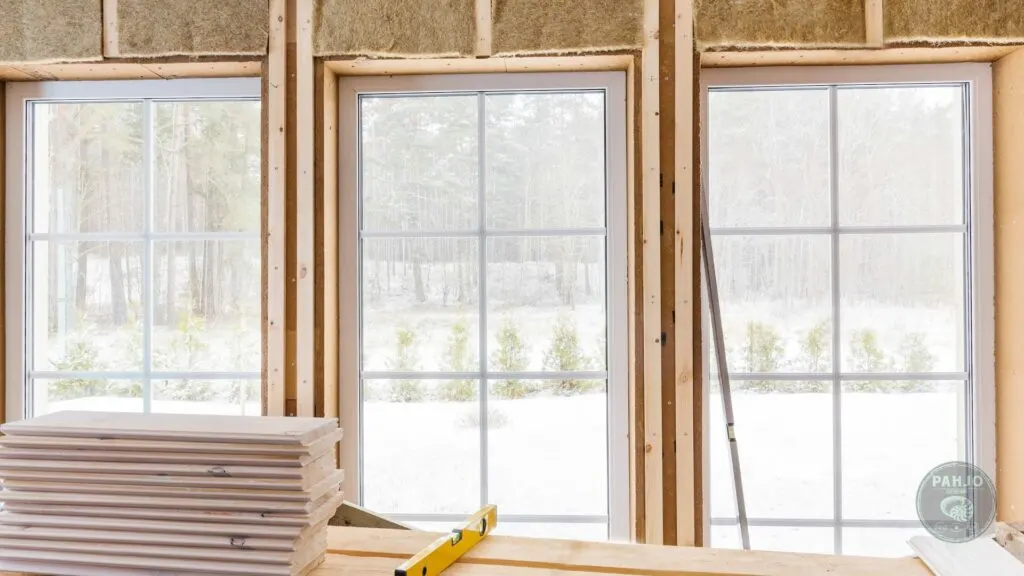
In some cases, window replacement is the best option.
Old windows, particularly single-pane ones, do not offer much sound insulation around the window frame.
On the other hand, soundproof windows are specially designed to block outdoor noises.
They often feature double or triple-pane glass and are sealed tightly to prevent sound waves from passing through.
Additionally, they might have laminated glass or use a special type of gas between the panes for further sound insulation.
Thus, replacing old windows can significantly help in soundproofing your space.
You can replace old windows with single-pane windows, double-pane windows, triple-pane windows, or storm windows.
14 – Blackout Curtains
The heavy, dense material of blackout acoustic curtains absorb some of the sound waves that would otherwise pass through the window.
In turn, this reduces the overall noise level in the room.
Secondly, blackout window curtains often have a tight fit around the inside of your windows, which can prevent sound waves from leaking in around the edges.
Finally, the extra layer of material provided by the curtains can disrupt the path of sound waves, further reducing the amount of noise that makes it through the window.
15 – Hire a Professional
If the noise level is too high or you’re not confident about this DIY project, hiring a professional can be a good investment.
They can assess your situation and recommend the best solution and most effective way to eliminate your noise problem.
Soundproofing Windows DIY Tips
While these techniques will greatly reduce the noise levels in your home, there are a few additional tips you should consider for effective soundproofing.
Double check your work
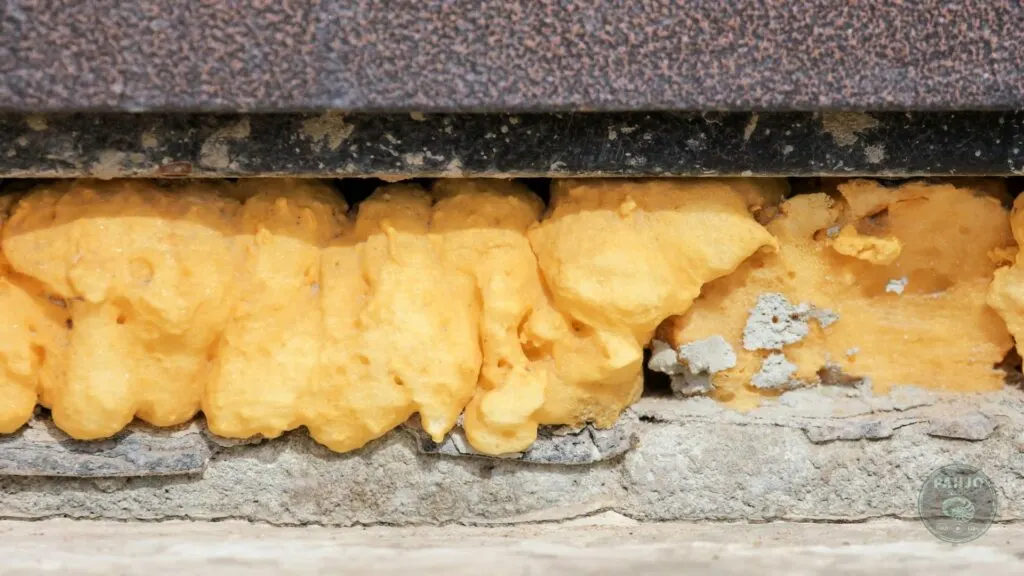
Make sure all cracks and gaps are properly sealed, and check that your window inserts or films are correctly installed.
Regular maintenance
Over time, your soundproofing measures may wear down.
Regularly check and maintain them to ensure they continue to work effectively.
Combine techniques
For maximum soundproofing, consider combining two or more of the techniques mentioned above.
What It Means to Soundproof Windows
First, windows are the weakest point in your home to allow unwanted exterior noises inside your home.
Soundproofing windows refers to the process of reducing the amount of noise that can enter or exit a room through the windows.
Window noise is reduced by adding materials to absorb, deflect, or block sound vibrations.
Soundproofing can involve a variety of techniques and different ways to reduce the amount of sound from the outside world.
Ultimately, homeowners soundproof windows to create a more peaceful and quiet environment by minimizing external noises.
Why Soundproof Your Windows?
Learning how to soundproof windows provides a multitude of benefits.
Noise Reduction
Obviously, the primary benefit of soundproofing windows is the significant reduction in the level of noise from outside sources (noisy neighbors). This can be particularly beneficial in urban environments, where traffic, construction, and other forms of noise pollution are common.
Energy Efficiency
As an added benefit, soundproofed windows improves your home’s energy efficiency. New windows prevent heat loss during the winter and keep the house cool during the summer, resulting in lower energy bills.
Increase Privacy
By blocking out external window noise, soundproof windows can also increase the privacy within your home.
You won’t have to worry about your conversations being overheard from outside.
Enhance Comfort
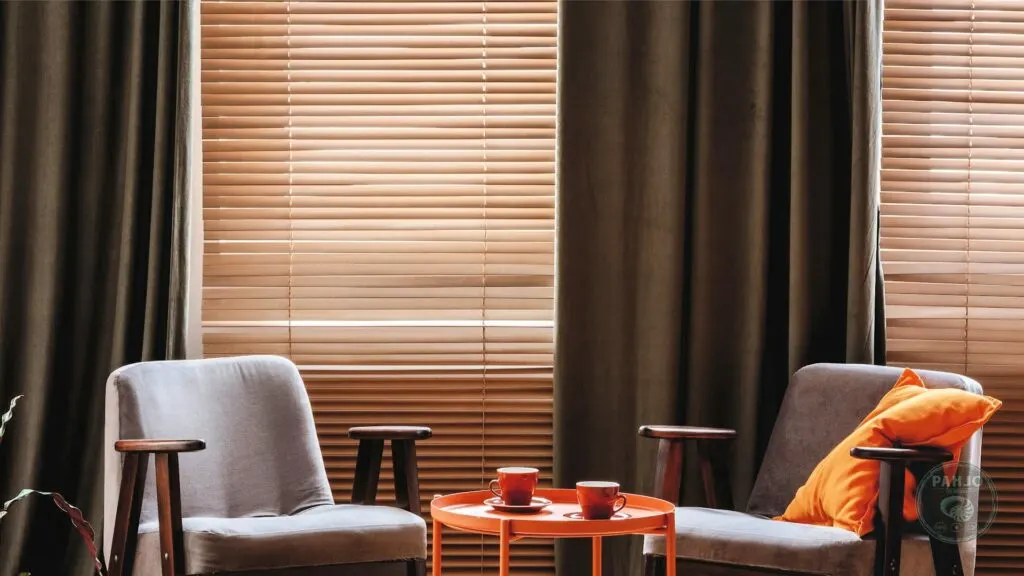
Reduced noise levels can lead to a more comfortable, peaceful living environment.
This can be particularly beneficial for those working or studying from a home office, or for individuals who require rest during the day.
Increase Property value
Homes with soundproof windows can be more desirable to potential buyers.
Obviously, potential buyers want effective soundproofing in noisy neighborhoods, potentially increasing the property’s value.
Conclusion
Learning how to soundproof windows is not complicated. But, with a little effort and investment, you can enjoy the tranquility you deserve
With these 15 simple DIY methods, you can reduce noise and create a more peaceful living environment.
Remember, what works best will depend on your specific situation and budget.
Also, always consider the source of the noise, the type of noise, and the specific characteristics of your windows before deciding on the best soundproofing method.
With the right approach, you can significantly enhance the comfort of your home.
Related Articles
How to Fix Hot Water Heater Leaking Rusty Water
DIY Spray Foam Insulation: What You Need to Know
How to Fix a Cracked Mirror
Cost to Paint Kitchen Cabinets
